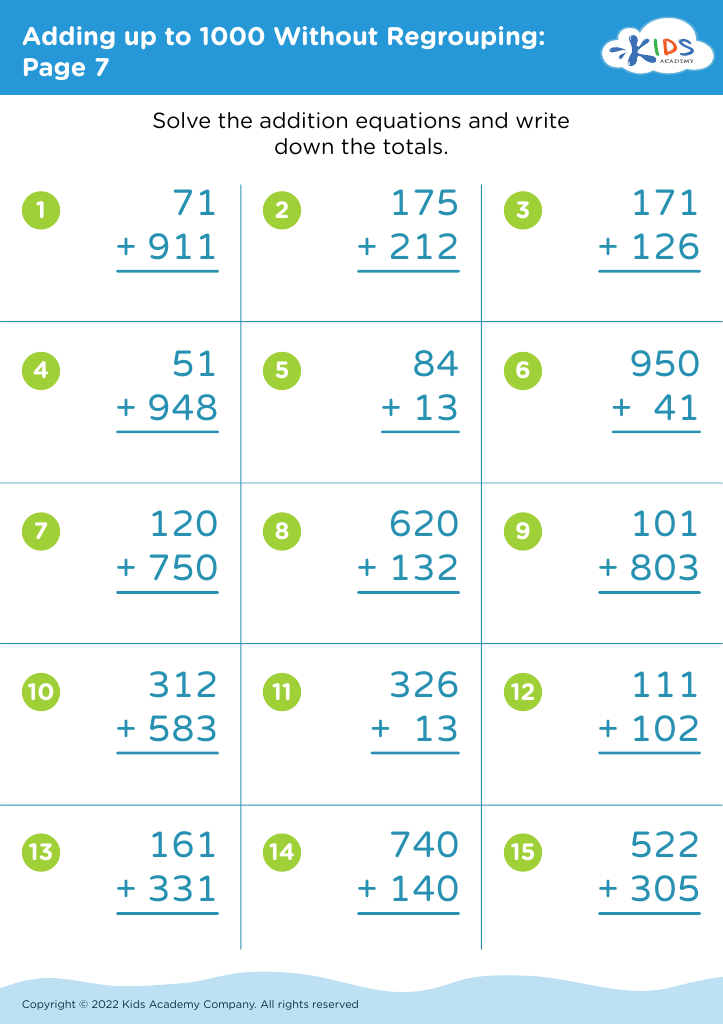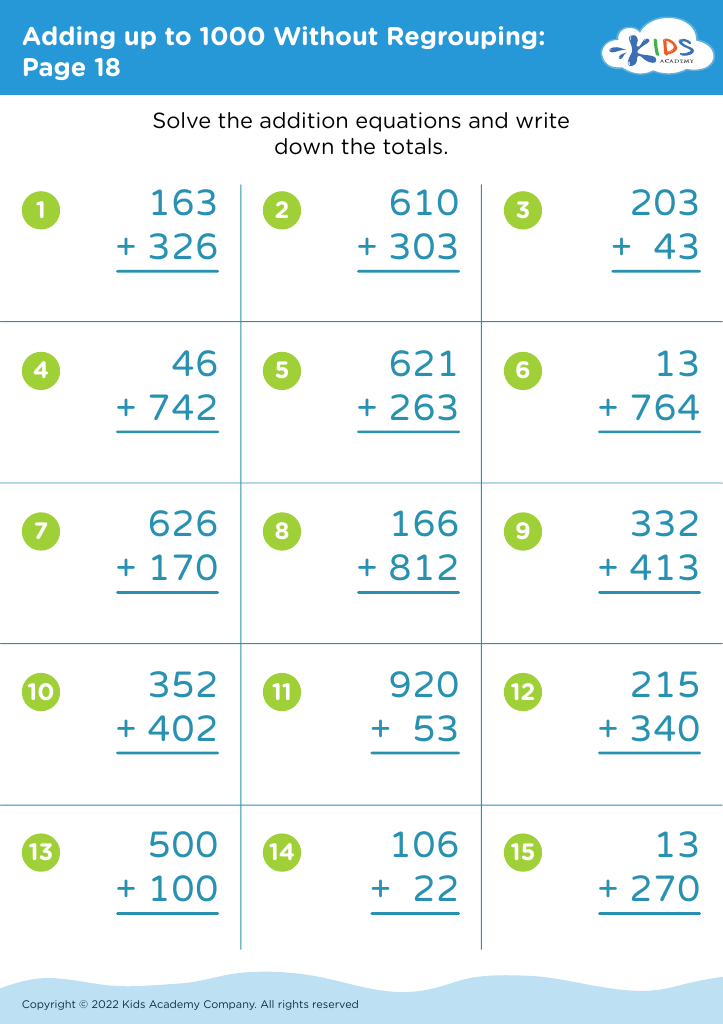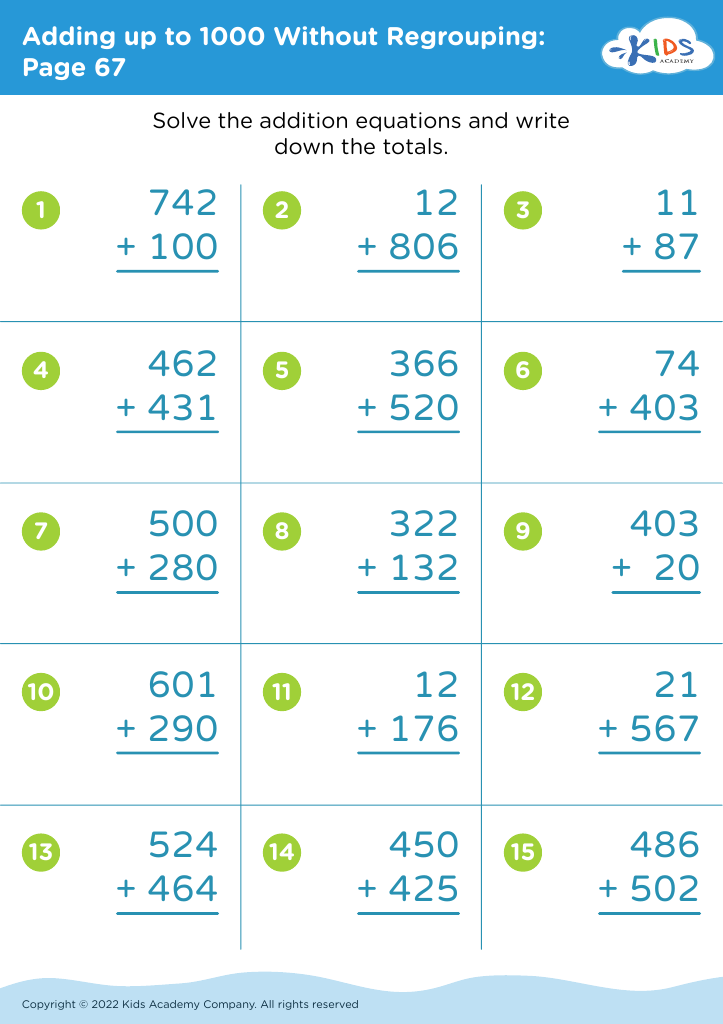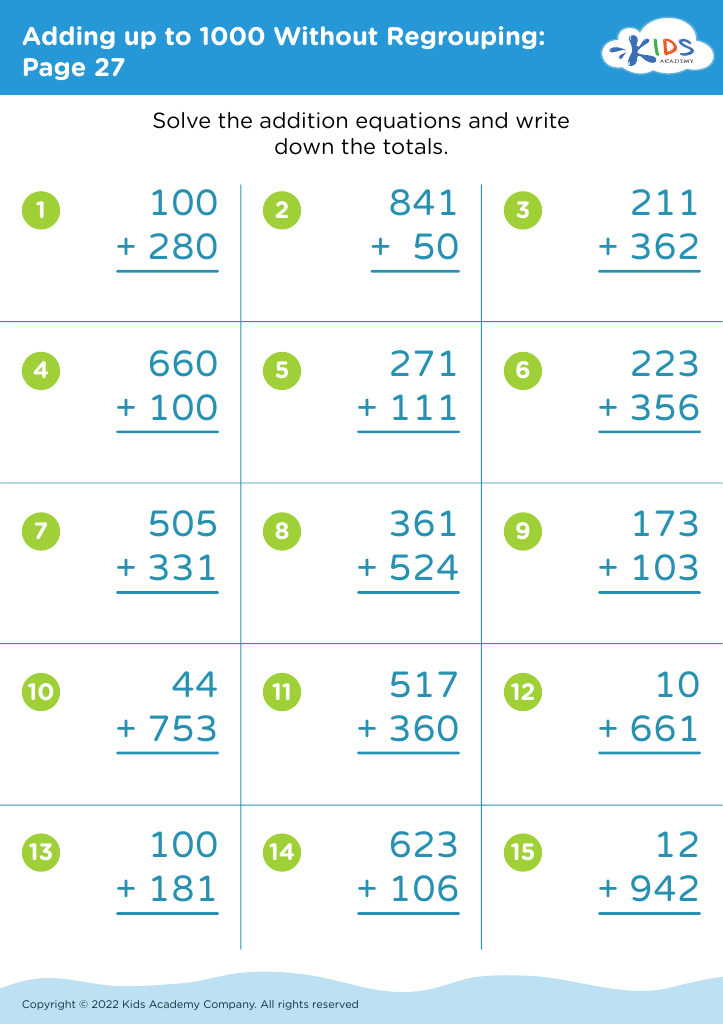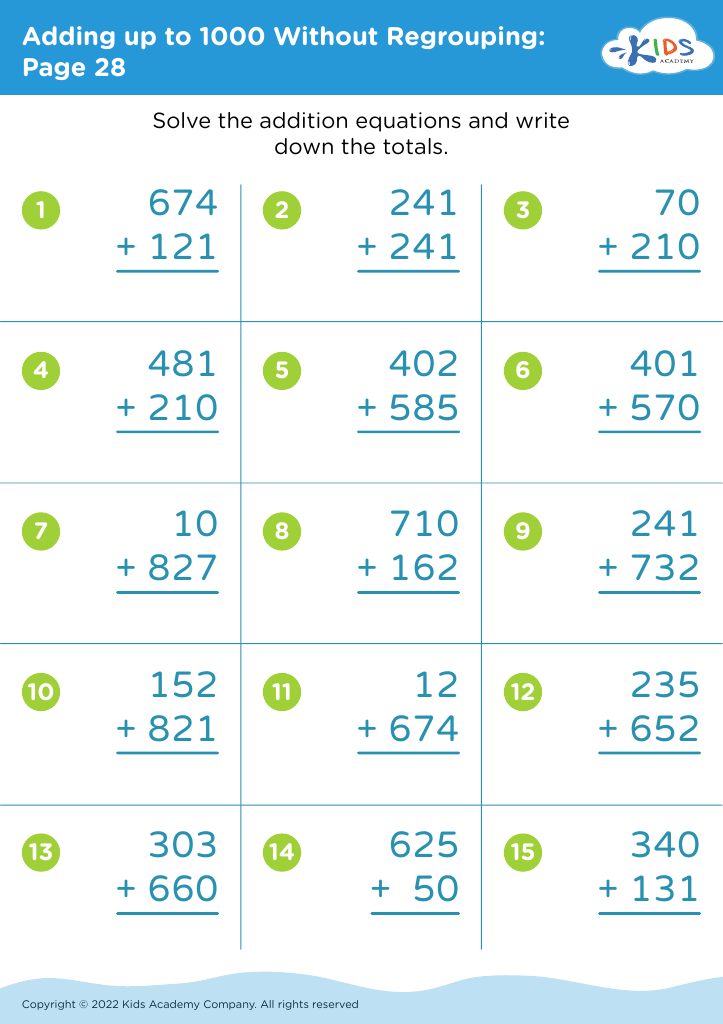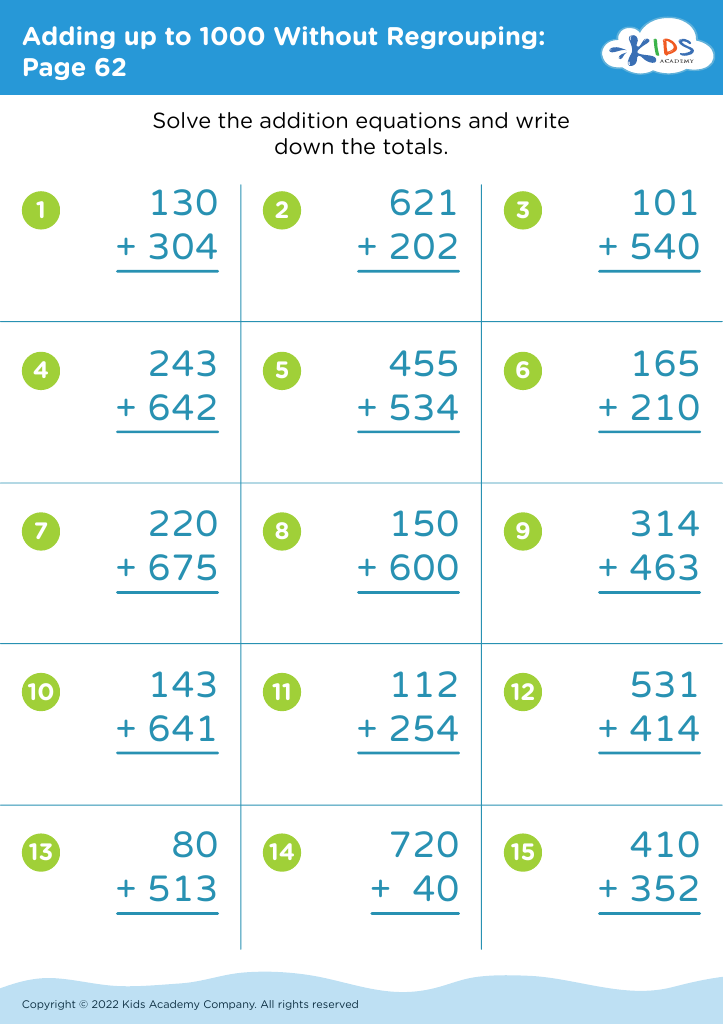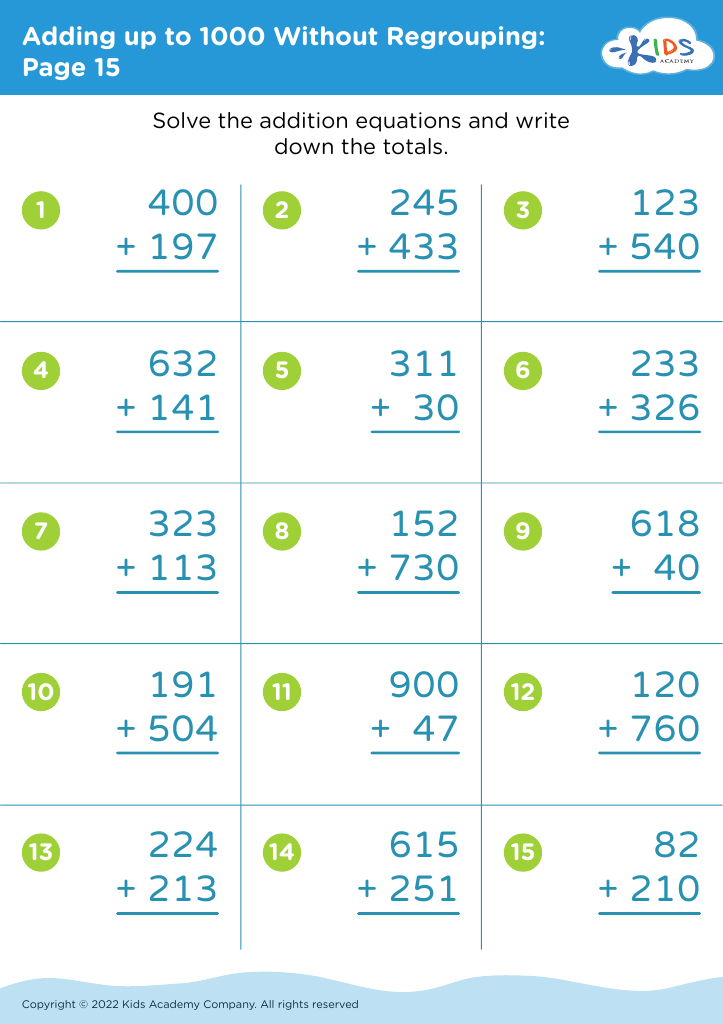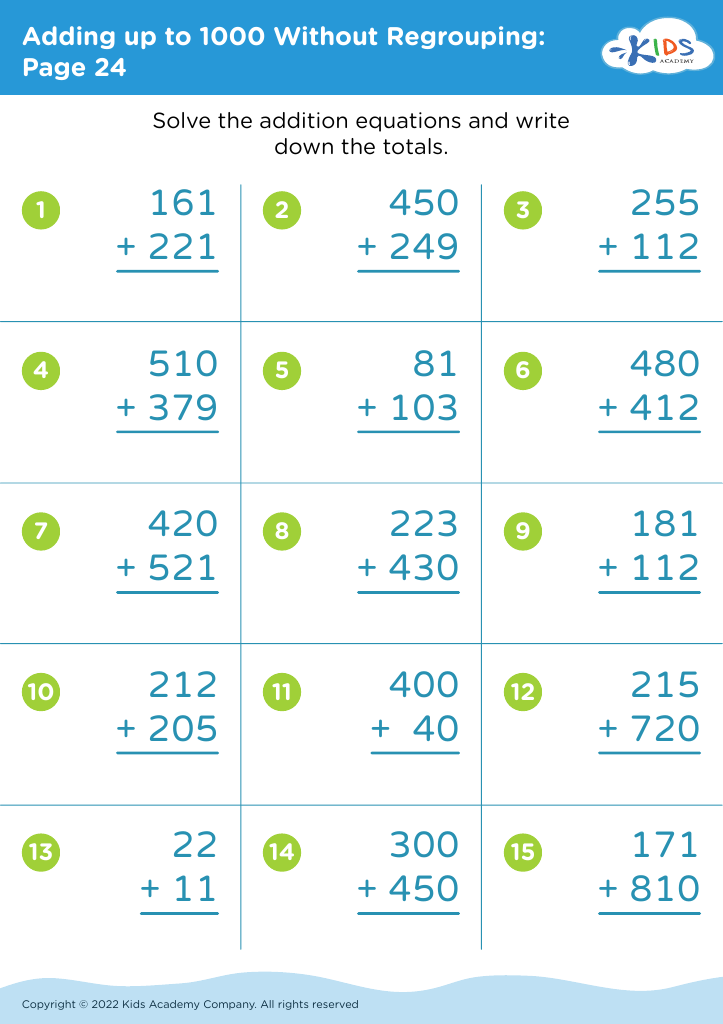Understanding fractions Adding up to 1000 Without Regrouping Worksheets for Ages 6-8
13 filtered results
-
From - To
Introducing our "Understanding Fractions: Adding up to 1000 Without Regrouping Worksheets" designed specifically for children aged 6-8. These engaging worksheets help young learners grasp the concept of fractions while developing their addition skills, all without the need for regrouping. With colorful visuals and age-appropriate exercises, kids will seamlessly incorporate fractions into their math toolkit. Each worksheet encourages critical thinking and builds a strong foundation in mathematics. Perfect for classroom use or at-home practice, these resources are tailored to make learning fun and interactive, ensuring that children master the exciting world of fractions as they confidently add larger numbers!
Understanding fractions and mathematical concepts such as adding up to 1000 without regrouping is crucial for children aged 6-8, significantly enhancing their cognitive and academic development. First, mastering fractions helps children grasp the fundamental notion of parts of a whole, which lays the groundwork for more complex mathematical operations and problem-solving skills. This understanding is vital not just in math but in everyday life situations, such as cooking or dividing resources fairly.
Additionally, the ability to add numbers up to 1000 without regrouping fosters essential skills in number recognition, place value comprehension, and mental math. This builds not only their numerical fluency but also confidence in their mathematical abilities. When children can solve problems accurately without regrouping, they develop stronger, more intuitive skills that will support their learning as they progress to more advanced math concepts.
Both parents and teachers should be actively engaged in nurturing these skills through games, discussions, and practical applications. Encouraging a positive attitude toward math during these formative years creates a love for learning and resilience in facing future challenges. Investing energy in these concepts today ultimately prepares children for success in academics and in life.


